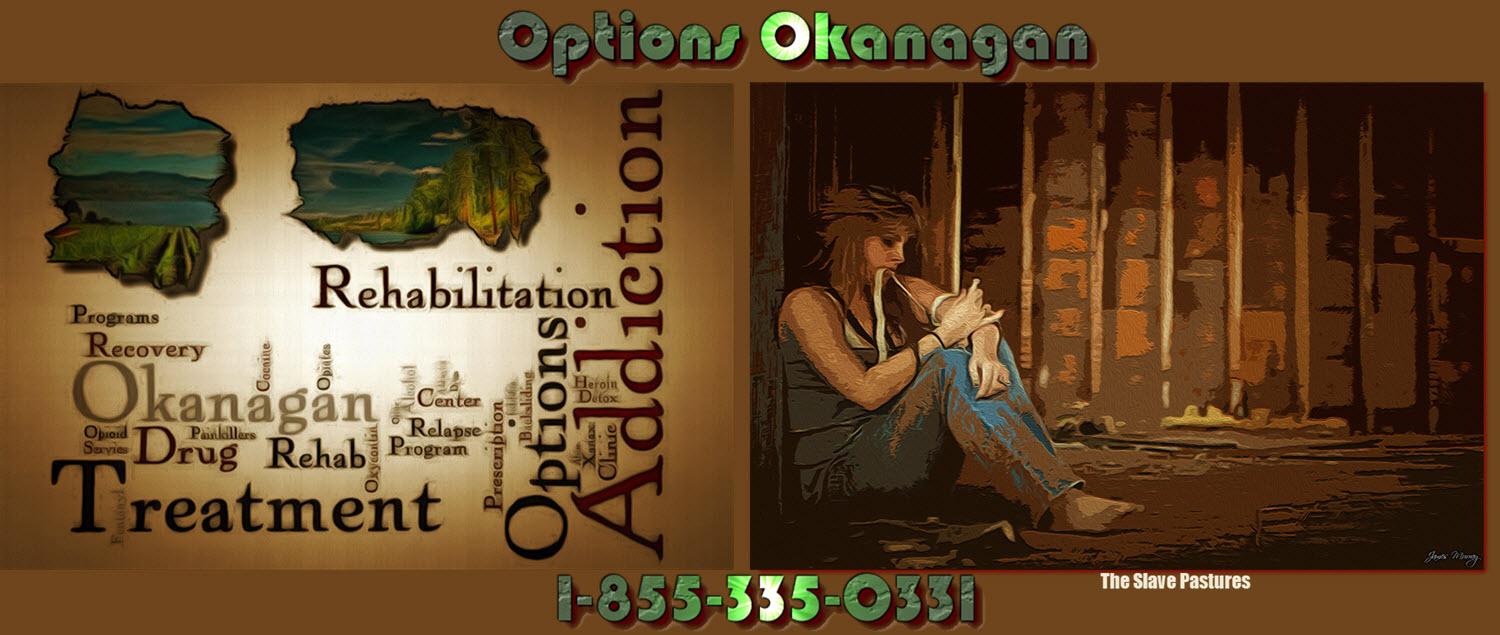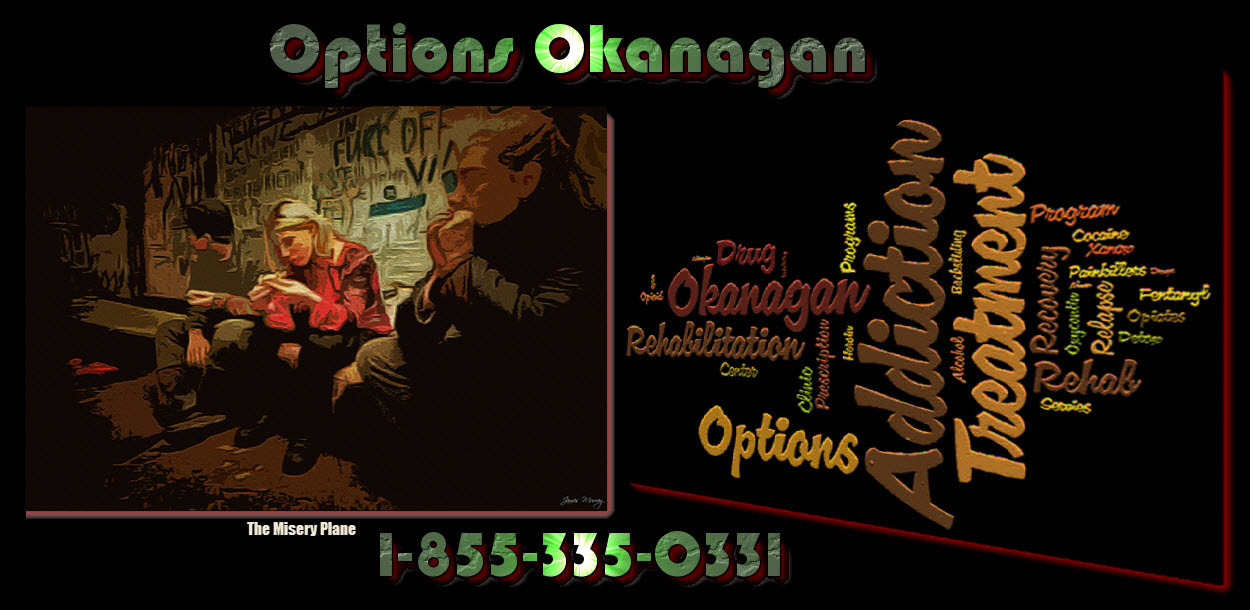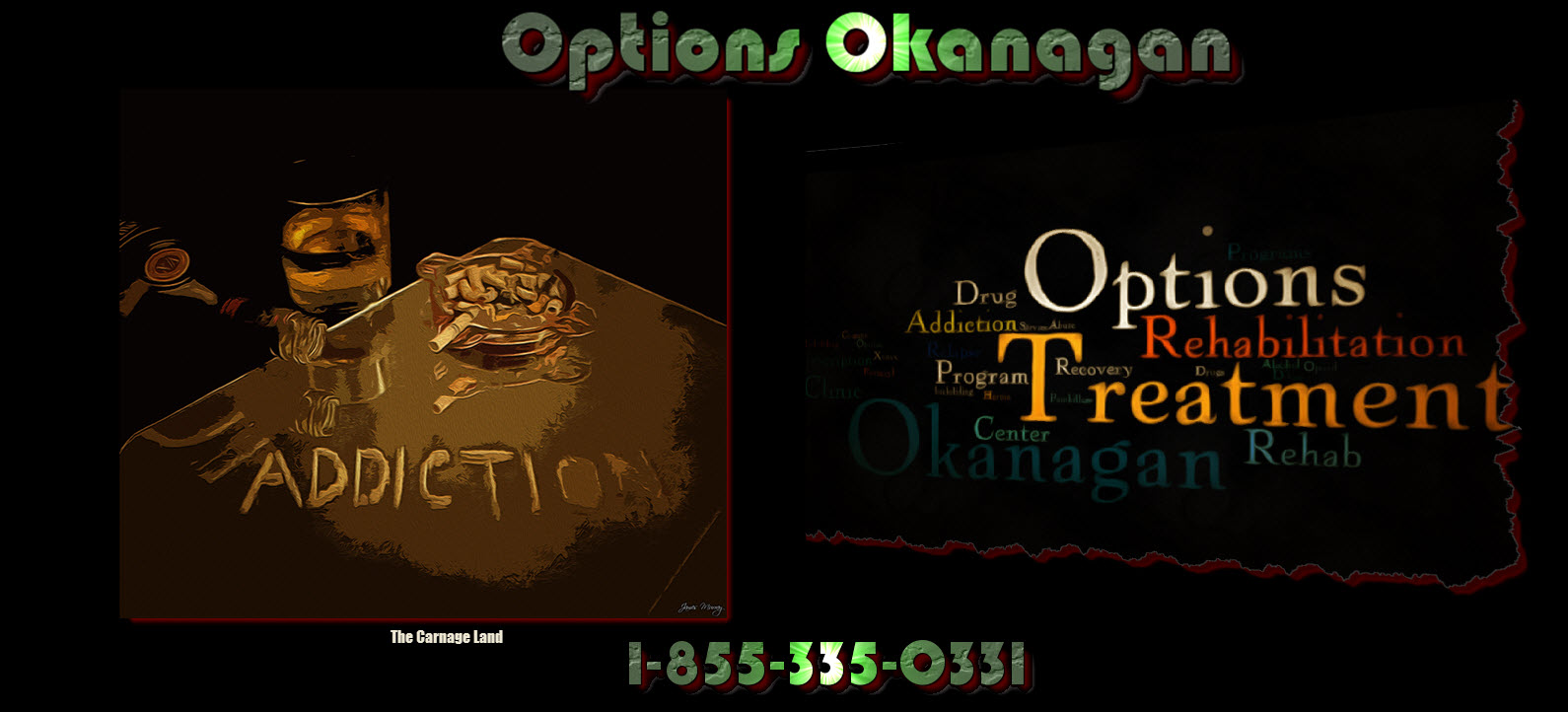Information individuals must learn about dual diagnosis and co-occurring disorders. Opioid and alcohol addiction rehab treatment clinics programs in Alberta and British Columbia – Options Okanagan Treatment Centers in Kelowna and Salmon Arm (Shuswap), British Columbia treating drug opiate and alcohol addiction and recovery.
Opiate Rehabs In Alberta And BC
Learning about and recognizing the interaction between mental disorders and dependency can help an individual heal and recover. Hardly ever does an individual’s addiction take place in a vacuum. Most of the times the root cause of an individual’s addiction to substances or a hereditary tendency to substance use disorder (SUD) are interweaved by the individual’s psychological health history. When individuals are handling both substance use disorder and also mental disorders, they are classified as having a dual diagnosis, also described as co-occurring disorders.
Being educated regarding co-occurring disorders can help and aid an individual or their loved one get in touch with the right therapy that they require to recover and heal. Getting involved with the appropriate addiction recovery programs that can help individuals take care of both conditions lowers their risks for relapses and also helps them remain sober in the long-term.
An individual needs to have an understanding of co-occurring disorders and by remaining informed regarding their medical diagnoses become part of improving their health.
Many individuals with substance use disorders are self-medicating underlying mental and psychological health problems like clinical depression or anxiousness. As a result of these disorders, it is typical for individuals to have both substance use disorders as well as mental illness disorders. Learning about, diagnosing or detecting, as well as treating and dealing with both conditions are instrumental for addiction recovery to be successful.
Substance use disorders and mental illness disorders typically go together, as well as the two conditions are also very common. There are over 12 million Canadians and Americans who are dealing with co-occurring substance use disorders and a mental, psychological health issue at the same time, according to national and local mental illness agencies.
A great number of individuals with mental disorders or mental illnesses do not have the money or resources to gain access and take care of their conditions. Oftentimes, this leaves them resorting to illegal drugs like heroin or abusing medications or using alcohol in order to self-medicate their problems away. About thirty-three percent of all individuals with a mental, psychological health condition and fifty percent of the individuals with significant mental illnesses have co-occurring substance use disorders.
Health and wellness medical specialists used to believe that substance use disorders were a moral, ethical failing and that mental, psychological health conditions like clinical depression and schizophrenia were brought on by moral, ethical weakness or bad, poor parenting. Nevertheless, understanding these two conditions has actually progressed quickly, with scientific research offering even more information and details on co-occurring disorders.
Nowadays, there are evidence-based therapies for both substance use disorders and also mental diseases. Making use of medicine and treatment, individuals with dual diagnoses can make wonderful progress in handling their conditions.
Before the scientific research results, medical professionals believed that substance use disorders needed to be remedied prior to an individual obtaining therapy for their mental disorders. Nevertheless, nowadays most healthcare service providers acknowledge that the most effective end results take place when both conditions are dealt with and treated at the same time, which medical professionals call now integrated therapy.
While it may be possible to live a healthy lifestyle with a dual medical diagnosis, dealing with a mental disease as well as a substance use disorder can be challenging and difficult. Due to the fact that some drugs used to deal with and treat mental diseases have the real possibility of being abused by the individuals. It is very important and necessary that individuals with dual diagnoses get in touch with a medical therapy professional who can help them create a drug monitoring strategy and plan that deals with both conditions.
Attempting to identify which of the conditions came first can be a difficult problem to solve. Nevertheless, research studies have revealed that some substance use can add to mental, psychological health, and wellness issues. For instance, there are some situations where early cannabis use has actually been related to raised dangers for psychosis in their adult years.
Both mental and substance use disorders are worsened when an individual is stressed out or worried. That is due to the fact that stress and anxiety changes how a person’s brain functions: For instance, stress and anxiety lowers the performance of the prefrontal cortex which helps individuals make logical and reasonable choices, and boosts activity in the striatum which can result in even more impulsive behaviors and spontaneous actions, according to government agencies on drug abuse.
Hereditary and genetic elements can raise an individual’s risk for both substance use disorder and mental disease. For instance, scientific researchers now believe that 45 to 65 percent of an individual’s risk for substance use disorder can be explained by genes. The remainder is identified by epigenetic as well as environmental, ecological elements, like childhood years in traumatic situations.
Many teenagers that have co-occurring substance use disorders and also mental disease benefited considerably from early intervention and treatment. Linking teenagers with therapies that recognize dual diagnoses can help them discover how to handle both their conditions without either getting to the point of a crisis situation.
Individuals with dual diagnoses can locate help from conventional addiction recovery and healing programs, however, they could additionally gain from participating in programs that are specially created for individuals with co-occurring disorders and conditions. Double Trouble in Recovery (DTR) is a Twelve Step program and the fellowship of women and men who share their experiences, and also for individuals with co-occurring disorders and conditions.
Options Okanagan Opiate and Alcohol Treatment Centers in Kelowna, Salmon Arm and Vancouver, British Columbia – Men and Women are recovering and healing from Alcohol and Drug Abuse at our treatment center here in the Okanagan right now.
Our unique and distinctive Opiate Drug and Alcohol treatment program allows men and women to come in from Calgary as well as Edmonton as we offer airport pickup.
Numerous clients come to us from Vancouver, Calgary, and Edmonton and other locations in Alberta and even other provinces for Opiate addiction treatment, heroin drug treatment, many other drug and alcohol addictions for rehabilitation because of the uniqueness of our treatment center.
Our (Kelowna ) Alcohol and Drug Treatment Program Location:
(Not Mailing Address) Contact Us – Web Page
For Mail Delivery :: Please contact each center for correct mailing addresses, also this location is the location of our residential treatment programs in Kelowna. Please call Toll Free 1-855-335-0331 to contact the treatment center you are going to for the address and directions.
Options Okanagan Drug and Alcohol Treatment Center
551 Sherrydale Crescent, Kelowna, British Columbia, V1V 2E6
Toll-Free Phone Number: 1-855-335-0331




